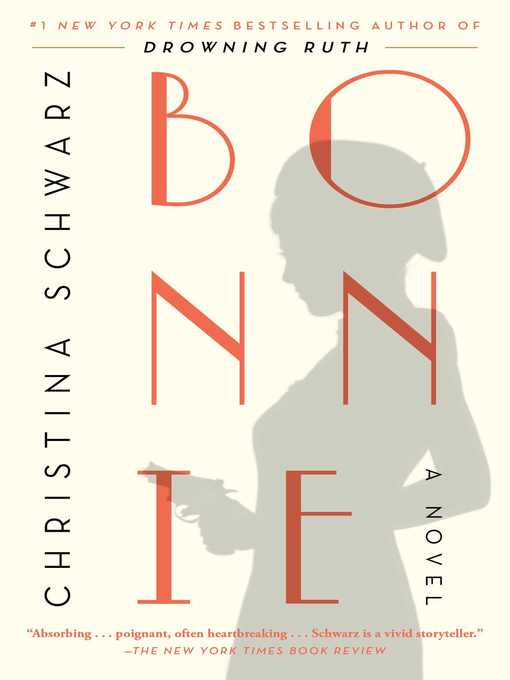
Bonnie
A Novel
کتاب های مرتبط
- اطلاعات
- نقد و بررسی
- دیدگاه کاربران
نقد و بررسی

May 1, 2020
Schwarz's fictionalized biography of Bonnie Parker, who, with Clyde Barrow, gained notoriety as part of a wave of Depression-era outlaws, will divide readers along generational lines. For those too young to remember the 1967 movie Bonnie and Clyde, this play-by-play account of the couple's far-from-successful criminal career offers a grim introduction to a gang of characters hopelessly downtrodden, psychopathic, or sometimes both. Readers who came of age around the time of the iconic film--a mix of comedy, graphic violence, and visual romanticism that made outlaws into larger-than-life romantic figures--will see Warren Beatty and Faye Dunaway on every page (as when Bonnie notices Clyde's dimple for the first time) and will wonder at the necessity of this ploddingly detailed, all-too-earthbound retelling. But the novel's opening offers even those who remember the movie a fresh, touching view of Bonnie before Clyde--the bright, sensitive child more plucky than headstrong evolving into a young woman still innocent but with "big dreams, no patience." Briefly married at 16, Bonnie is waitressing in Dallas, Texas, when she meets Clyde, whose courtship is charming and conventional in its first weeks until he's arrested while sleeping on her (always devoted) mother's couch. Sent to jail in March 1930, Clyde convinces Bonnie to help him escape. Recaptured, he's sent to a harsher prison. When he's released two years later, they hit the road, living off Clyde's robberies, which often go wrong and sometimes end in someone's death. They're joined in their dreary capers by a few hardened criminals but mostly by boys like W.D., riding along for the excitement until implicated too deeply to easily leave. By 1934, Bonnie is destitute, in constant pain from a car accident, drinking and popping pills. Still committed to deluded loser Clyde, she continues writing romantic poetry although her own romantic illusions evaporated long ago. So many cars and guns, so many screw-ups, so many dead bodies--they all blur together after a while.
COPYRIGHT(2020) Kirkus Reviews, ALL RIGHTS RESERVED.

May 18, 2020
Schwarz (The Edge of the Earth) entices with this introspective view of notorious bank robber Bonnie Parker. In 1926, Bonnie marries her high school sweetheart, Roy, at 15 and they drop out of school. After Roy disappears for long stretches, Bonnie begins waitressing at Marco’s Café in Dallas to make ends meet, writing poetry on the side and leaving out food for people in need. After the Great Depression hits and Marco’s closes, Bonnie works odd jobs and her dreams of becoming a poet dim (“she’d learned to accept the fading of those bright dreams as the price of adulthood”). In 1930, Bonnie leaves Roy and stays at a friend’s house. A young man named Clyde Barrow shows up there, and Bonnie becomes enamored with him. Clyde courts Bonnie for a few weeks before being slapped with a two-year sentence for stealing a safe. Bonnie visits him in prison, and after he’s freed and starts robbing banks, she evolves from accomplice to partner in crime. She and Clyde continue their spree across the southeast, stealing cars, robbing banks, and exchanging gunfire with police, activities that lead to their being gunned down in a police ambush in 1934. The author expertly magnifies the characters’ desperation and intertwines the excitement of eluding the law with their magnetic sexual attraction. Schwarz’s rich narrative brings fresh life into the notorious tale of two American outlaws. Agent: Claudia Ballard, WME.

June 1, 2020
Bonnie Parker is a small-town girl with decent prospects. Despite hardship, her family avoids destitution, and Bonnie does well in school. But Bonnie's unhealthy obsession with being noticed, coupled with small-time crook Clyde Barrow's carelessness, is a tragic combination. Pop culture would have the two as star-crossed lovers, their deaths near-heroic and inescapable. But Schwarz's (The Edge of the Earth, 2013) psychoanalytical take showcases the human toll of lives lost to stupid ambitions ineptly pursued and Bonnie's avoidable association with a liar who cares little for her or anyone else. There is no glory in a life on the run. Schwarz illuminates the boredom and shiftlessness of such an existence, so far from the home and the children Bonnie dreamt of. Schwarz's portrayal rings true and is especially pitiable: Their existence might be chaotic and dirty and sickeningly violent, but if they lived and died for that existence together it seemed . . . at least significant and exceptional. She could tell herself it was a love story. Schwarz reveals that love story as a lie and that Bonnie knows it is.(Reprinted with permission of Booklist, copyright 2020, American Library Association.)

























دیدگاه کاربران